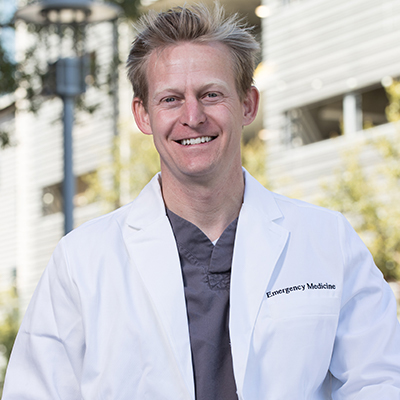Table of Contents
Sexual Assault Awareness Month is an opportunity every April to educate and engage the public on the issue of sexual assault. For higher education, institutions must provide resources to educators and administrators about sexual assault and violence. Thirteen percent of all students experience rape or sexual assault through physical force, violence, or incapacitation — 26.4% of college women and 6.8% of college men. Higher education leaders play a vital role in preventing sexual assault on college campuses — a role so important that the actions of today will undoubtedly change outcomes for students tomorrow.
According to the U.S. Department of Justice, sexual assault is defined as “any type of nonconsensual sexual contact or behavior that occurs without the explicit consent of the recipient. Falling under the definition of sexual assault are sexual activities such as forced sexual intercourse, forcible sodomy, child molestation, incest, fondling, and attempted rape.” Sexual assault is characterized in different ways, but most importantly, it’s never the victim’s fault.
Studies show that students are at the highest risk of sexual assault on college campuses in the first few months of their first and second semesters. And women who identify as lesbian, transgender, bisexual, or gay experience higher rates of sexual assault on college campuses than heterosexual women.
College students need care and support
Sadly, only 20% of female student victims ages 18 to 24 report sexual misconduct to law enforcement, which means 80% of sexual violence cases go unreported. Why? Because victims believe it’s a personal matter, are fearful of reprisal, don’t want to incriminate the perpetrator, believe police can’t help, or they report to individuals other than the police. And while research focuses on college or university women, male victims often suffer in silence as well due to shame, humiliation, and other factors related to gender and cultural stigmas.
Higher education professionals must be proactive about preventing sexual assault and supporting victims of sexual assault on campuses. Toward that aim, it’s critical to understand Title IX, part of the Education Amendments of 1972 designed to protect people from discrimination based on sex in education programs that receive federal financial assistance.
Title IX regulations require educational institutions to operate in a nondiscriminatory manner and provide students with an environment safe from sexual harassment and sexual violence. The Final Rule, which became effective August 14, 2020, is under review by the White House. It stipulates how recipients of educational federal funding must respond to reports of sexual harassment and sexual coercion.
All students, faculty, and staff are encouraged — and in some cases federally required — to receive Title IX training. You can find resources on the U. S. Department of Education Title IX webpage, with important tools and training themes such as awareness programs, bystander intervention, ongoing prevention and awareness campaigns, primary prevention programs, and risk reduction.
While Title IX regulations provide guidance for preventing sexual assault on college campuses, faculty and staff also need to be equipped to support victims of sexual assault on a personal level.
How to care for students who have experienced sexual assault
Higher education faculty and staff cannot be the only ones responsible for supporting victims of sexual assault. However, the nature of their role puts them in circumstances in which they can provide support. The Rape, Abuse, and Incest National Network (RAINN) offers recommendations for talking with survivors. You may also find these additional recommendations for mental health support to be helpful.
1. Listen
2. Affirm
3. Safety
4. Assist
5. Connect
If the victim is unwilling to go to a hospital, encourage them to call the National Sexual Assault Hotline at 800-656-HOPE (4673) so they can speak with a local sexual assault service provider.
6. Be patient
7. Follow up
How colleges and universities can support students
Higher education leaders continue to search for effective ways to prevent rape and sexual assault on college campuses. Some institutions hire campus police to patrol the campus and provide transportation so students are not alone when they travel home or go off-campus. Some institutions publish tips and resources for students, faculty, and staff. Other colleges offer educational programs that explain sexual violence and how to reduce risk exposure.
The University of Missouri implemented one such program, Green Dot, that teaches people how to become active bystanders by interrupting situations that are imminently or potentially high-risk for violence. Danica Wolf, the former Relationship and Sexual Violence Prevention Center (RSVP) center coordinator, said, “Since its implementation over six years ago, Green Dot has become a force for change on campus, becoming a household name among staff and students alike.”
Culture of Respect was founded in 2013 by the parents of college-aged students who were alarmed by the high rate of sexual assault on campuses, the lack of comprehensive resources, and the breach in student civil rights. The program provides techniques for handling a situation without bystanders present and is used by over one hundred colleges and universities across the U.S.
Campus Survivors is an independent organization launched this spring by four Boston University students to create a supportive community for survivors of sexual abuse by inviting them to anonymously share their stories, which are posted on the organization’s social media. Their goal is to ensure victims’ voices are being heard and will not be silenced. The group welcomes submissions from students on other college campuses as well and shares a list of resources, including organizations that can offer assistance and guidance on how to prevent sexual victimization and report the crime to local law enforcement.
Some institutions have gathered resources for victims and those who support them. Colgate University published practical tips for students, parents, faculty, and staff supporting a survivor of sexual violence. Penn State University has a comprehensive site for anyone who has experienced or is supporting someone who has experienced sexual assault, sexual harassment, dating or relationship violence, stalking, or sexual exploitation.
These are a few examples of how colleges and universities are working to prevent sexual assault cases on their college campuses.
Discover how telehealth provides care and support
Ensure students, faculty, and staff have what they need
Many websites have resources for sexual assault victims and their loved ones. Below are some of the leading resources for victims of sexual assault that you can reference.
The national hotline, operated by RAINN, serves people affected by sexual violence. It automatically routes the caller to their nearest sexual assault service provider. You can call the hotline at 800-656-HOPE or search for your local center.
Founded in 1975, NOVA is the oldest national victim assistance organization of its type in the U.S.
NSOPW is the only U.S. government website that links public state, territorial, and tribal sex offender registries from one national search site.
Created by Stop Street Harassment, Defend Yourself, and RAINN, the National Street Harassment Hotline is a resource for those affected by gender-based street harassment. Support is available in English and Spanish. Call 855-897-5910 or chat online.
Start the conversation on prevention efforts and support resources
In addition to these resources, TimelyCare offers comprehensive services to support the physical and mental health of college students. TimelyCare’s programs are designed to meet the exact needs of your college or university. Our team aligns the health of your college students with the objectives of your campus community to create a solution that works for you.
Raising awareness about the prevalence of campus sexual assault this month is a worthy initiative, but this is an effort that must continue every month, every week, every day. Use this article to initiate a conversation on your campus, and apply the information and resources outlined to essential collaborations for sexual violence prevention efforts.
If you’d like to discuss how telehealth services can integrate with your campus protocols for sexual assault prevention, referring to in-person care, and emergency services for students in a crisis situation, contact TimelyCare today.






